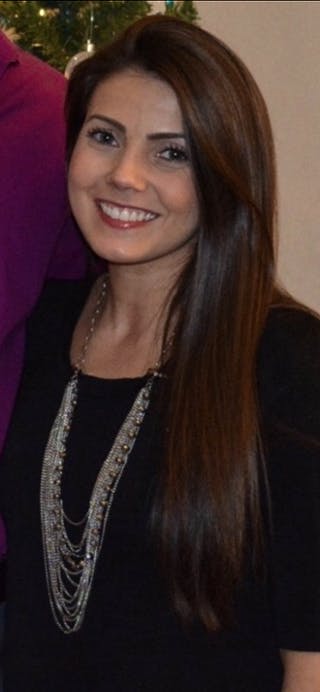Caring for COVID-positive patients brings unexpected challenges
By Danette Niles, BSN, RN-BC
Tuesday, May 5, 2020
I became a member of the front line team treating COVID-19 literally overnight.
I was on my midnight shift at Strong Memorial Hospital when we were transitioned from a rule-out unit to a COVID-19 positive unit. In the span of a few hours, we went from testing patients for the coronavirus to treating them for it.
My unit, 6-3600, had been a med-surg unit treating all kinds of acute care medical ailments until early March. Ironically, I was also on shift during our first transition to a COVID rule-out unit. The 6-3600 staff was apprehensive upon hearing the news but immediately began the process of prepping the unit to receive these patients without skipping a beat. It now fell to us to test patients being admitted who were suspected of having COVID-19. At this point patients testing positive were sent to our Highly Infectious Disease Unit (HIDU), used as our bio-containment unit.
 Around April 1, we transferred all patients off the unit and our environmental services crew performed a deep cleaning of the unit in order to start admitting COVID-positive patients the following morning. I believe we were the first “floor status” unit for COVID-positive patients, meaning the patients we were accepting were medically stable. They no longer needed critical care or ventilators, yet they were not well enough to go home. We provided them supportive care, supplemental oxygen while their bodies continued to fight the virus, and monitored them closely for signs of deterioration and respiratory failure. Once these patients recovered we were lucky enough to be the staff to discharge them to home and to be reunited with their families.
Around April 1, we transferred all patients off the unit and our environmental services crew performed a deep cleaning of the unit in order to start admitting COVID-positive patients the following morning. I believe we were the first “floor status” unit for COVID-positive patients, meaning the patients we were accepting were medically stable. They no longer needed critical care or ventilators, yet they were not well enough to go home. We provided them supportive care, supplemental oxygen while their bodies continued to fight the virus, and monitored them closely for signs of deterioration and respiratory failure. Once these patients recovered we were lucky enough to be the staff to discharge them to home and to be reunited with their families.
As for providing direct care to patients with this virus, it’s been challenging, but not for the reasons you might think. As nurses, we enjoy caring for patients and we spend a great deal of shift time with them. All of a sudden, we have to group their needs to limit our exposure to our patients. Prior to this situation we would round hourly to look at their faces and assess their needs. Unfortunately, we’ve had to pull back on the reins and care for patients in a different way, one that provides all the necessary care while limiting physical contact and minimizing exposure. As a result we have called our patients on their room phone to discuss their needs so we can bring them everything necessary in one visit. This avoids multiple trips which increases our exposure and use of precious PPE. It has been very hard, as it is in our nature to want to be at their side during their hospitalization, and the holistic approach to the care we provide has been hindered. For a hands-on group like we are, we’ve had to totally change the way we nurse.
For most of us, the fear of catching the virus is minor in comparison to the challenges of adapting to the new high-risk environment we now work in every day. Fortunately, we know what to do and how to prevent transmission thanks to guidance of our strong leadership team. We are diligent in washing our hands and using our PPE in order to protect our community and ourselves.
Our biggest fear is being a vector and transmitting this virus home to our families and loved ones. Thankfully, the hospital has taken the necessary steps to ease our minds, allowing staff on COVID units to have access to locker rooms and hospital scrubs, which we return at the end of our shift to have them professionally laundered.
There is always going to be some level of fear or anxiety that we will become a vector to infect others, so we stay confident in our clinical skills that we can effectively provide nursing care while minimizing this risk. Even when we are afraid we know we must persevere in the face of fear because our patients need us. The patients are the reason we show up to work and whatever brought these patients into the hospital has never mattered to us before and that holds true now. I stand with the 6-3600 nurses and all the staff at SMH, and we want the community to be assured that if you become a victim of this pandemic, we will take care of you.
Nurses have an incredible ability to adapt to situations, innovate to find solutions, and work as a team to get the job done. It is in our nature to provide compassionate care and we will continue to provide care to the best of our ability until this pandemic is behind us, because together we are strong.
Danette Niles, BSN, RN-BC, is a Sr. Level 3 registered nurse, unit designated safety nurse and board certified in med-surg nursing. She is a 2012 UR SON graduate and works on the acute care 6-3600 unit at Strong Memorial Hospital. This article originally appeared in the Democrat & Chronicle's Salute to Nurses.
Categories: RN to BS Online Program

